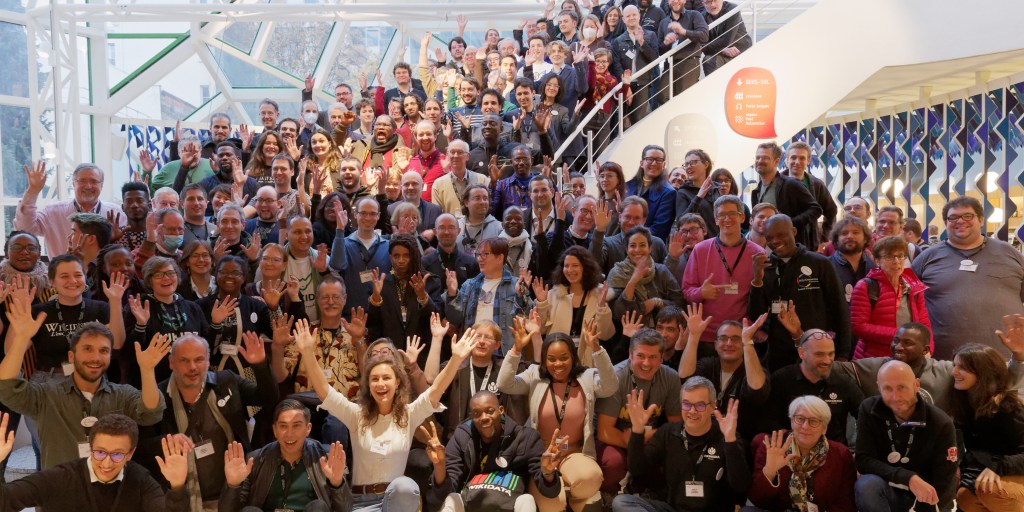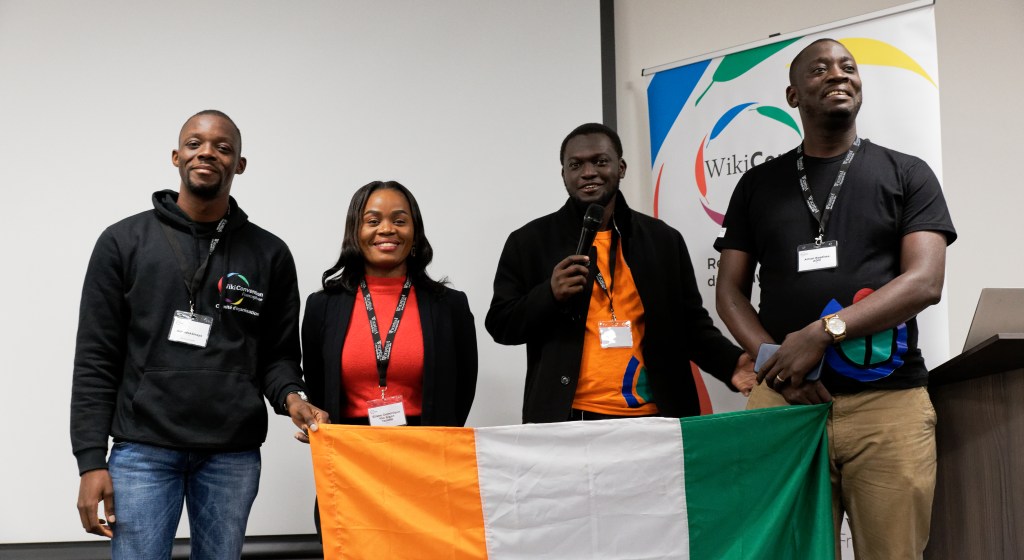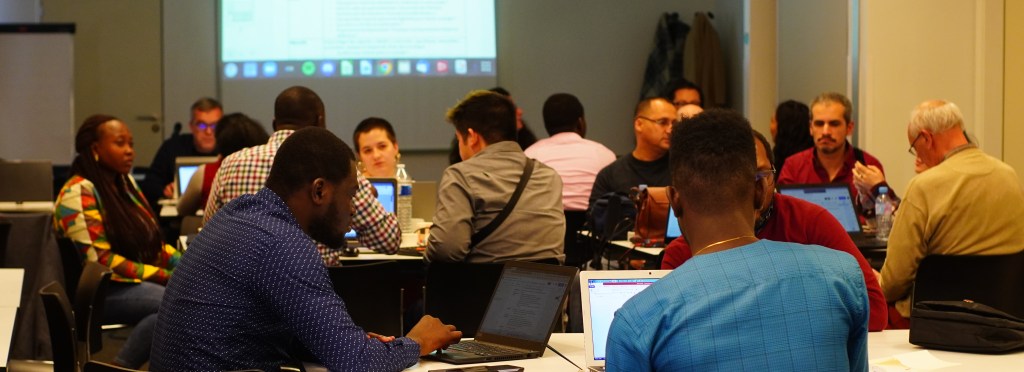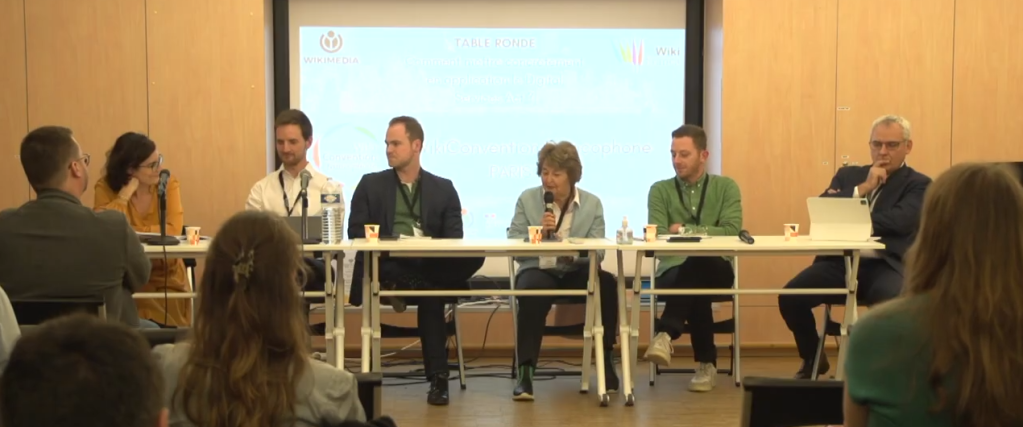November 19th marked the start of the 6th edition of the WikiConvention Francophone, the annual event which brings together French-speaking Wikimedian communities from around the globe.

The main event for French-speaking Wikimedians
This year, over 160 participants hailing from every corner of the French-speaking world gathered in Paris, as it was the first in-person edition since 2019. On top of representing an opportunity for heartfelt reunion among the French-speaking Wikimedians of the world, the WikiConvention having strewn together a large group of friends across the years, this year’s convention was rich in surprises and novelty.
Theme-ordered sessions were given concurrently, and participants could chose to attend conferences on Wikimedia projects, or to partake in workshops or in discussions regarding the state of the movement. Out of over 80 sessions held this year, participants with interests in GLAM subjects could chose to listen to a report on open culture in France, outlining the challenges faced when it comes to the digitization of written sources and their subsequent publication. People interested in educational projects could discover “Wikeys”, a new board game designed for students as an entry to user contribution on Wikipedia. Practiced Wikimedians could also attend workshops on Toolforge, the tool-making hosting environment for Wikimedia projects, or on Open Refine, an underused tool with uses in Commons, Wikidata and Wikimedia projects overall.
Building capacity across the world
At the heart of the French-speaking Wikimedian sphere is WikiFranca, which held its board meeting and reelected its board members during the WikiConvention Francophone. According to its president, Éliane Yao Sigan, the meeting was a means to formalize WikiFranca’s status juridically as an association, but it also marked a milestone in its quick development.
The two days preceding the convention were dedicated to learning and exchange sessions. Those were an opportunity for capacity-building between the French-speaking chapters and user groups. Users from 3 different continents had discussions on project-building and association governance. The sessions shed light on the existing geographical disparities between the user groups, regarding capacity and means.
Participants were put in cross-national work groups, and were assigned a project which they were meant to put to practice, step by step. The first day started with a session on project planning (many of the participants had never worked on a project plan before) followed by others on institutional partnerships, financing, and on volunteer implication.
The day ended with a session on how to build an action plan and define an annual budget. Many user groups operated without an annual budget, and all the participants in that situation are now intent on setting one with their boards. With the remaining sessions spent on strategizing and governance, the learning days were met with enthusiasm. Minette Lontsie from Cameroon recalls the exposure to discrepancies between the user groups as having had a bolstering effect on her and on her projects. In addition to that, the sessions helped to establish partnerships between the members of affiliate groups from around the world.
Free internet and European regulation
The organizers also held a round-table discussion on the Digital Services Act, which was approved by the European Council in October of this year. This discussion, moderated by Joëlle Toledano, from the French Digital Council, included participants from online platformgroups (Wikimedia Foundation, Dailymotion, Microsoft) as well as regulatory and institutional bodies (ARCOM and French Council of State). Many subjects were discussed during the 2-hour open session, among which: the regulation of online platforms through the new law, and the challenge of taking into consideration the differences between those, as to their aims and business model.
Keeping opportunities border-free
This year, a large number of grants were handed, especially to Wikimedians from Africa and from Haiti. Unfortunately, this year again, a large amount of them had their visas rejected. People who were supposed to give a lecture and who did not receive their visas had the opportunity to design posters detailing the content of their conference. Those were then displayed in a specific room. Nonetheless, an increasing number of African grantees managed to attend the convention, marking a step towards the recognition of Wikimedia events worldwide.

Next year, the WikiConvention will take place in Abidjan, Ivory Coast. Wikimedians will be able to discover a wonderful city in the heart of west Africa, and to meet with the members of the ever-growing Ivorian user group, many of whom delighted us with their presence in Paris. On top of that, it will be an opportunity for French-speaking Wikimedians of Africa to attend the WikiConvention with much less trouble.

Can you help us translate this article?
In order for this article to reach as many people as possible we would like your help. Can you translate this article to get the message out?
Start translation

